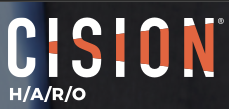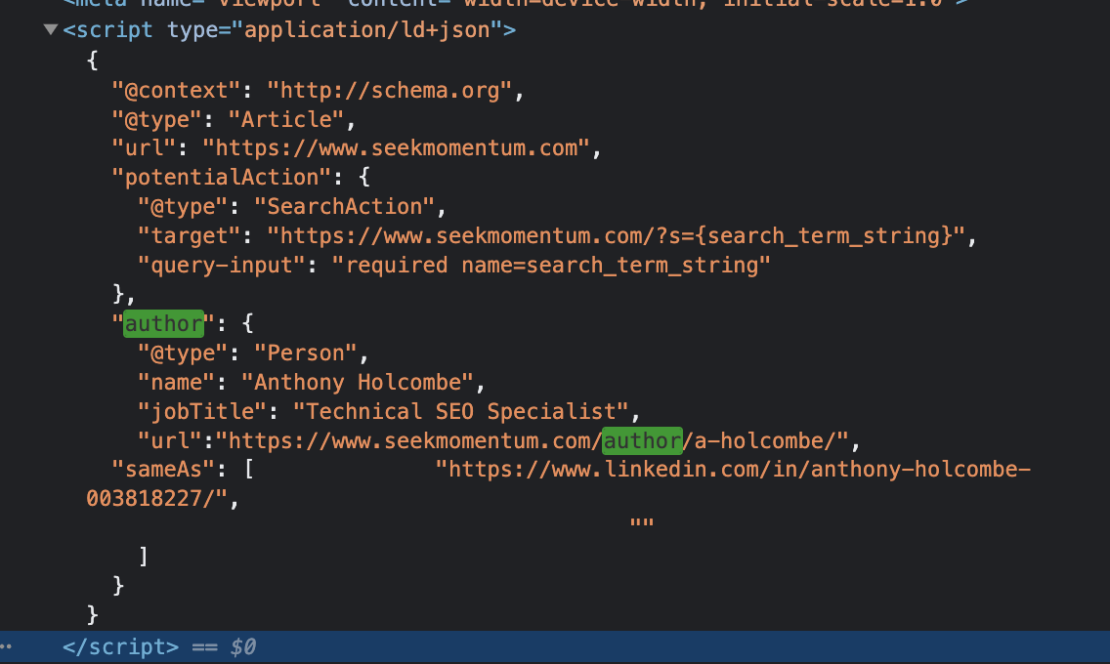Using Author Profiles to Establish E-E-A-T
When I went through my Library & Information Science master’s program, information sorting was one of the first concepts taught to me.
There’s an overwhelming amount of information online, and many people don’t know how to sort through it properly. In fact, when teaching research courses, I wasn’t surprised to find that most students were only looking at the first resource populated on Google’s search engine results page. And, when students were asked to sort through resources, they often wouldn’t check the publication date, author credentials, and backlinks (or, for academic resources, citations).
Google holds a lot of responsibility for weeding out misinformation, especially now when AI-generated content (that’s potentially inaccurate) is becoming normalized. Part of Google’s response to weeding out search engine-generated content or unreliable content is adding E-E-A-T to their Quality Content Rater Guidelines.
What Is E-E-A-T?
E-E-A-T stands for Experience, Expertise, Authoritativeness, and Trustworthiness. Adding E-E-A-T as a qualifier in Google’s content guidelines means that Google is prioritizing content that is (seemingly) curated by trusted experts in the field.
Experience Versus Expertise
When E-E-A-T was introduced, my honest thought was: wait, what is the difference between experience and expertise? Don’t they go hand-in-hand? If someone has a lot of experience, aren’t they considered an expert?
Then I thought more about it, and it became clearer that there was a fine line between experience and expertise.
For example, let’s say a new skin care product is coming out. The company responsible for the new product may produce video content or written content from a dermatologist explaining how to use the product or how the product may address specific skin concerns. This is an example of expertise because the dermatologist is considered an expert in medical care (related to skin, hair, and nails).
On the other hand, if a magazine or individual created a review about a new product that heavily detailed their experience using that product, that would be considered experience.
Establishing E-E-A-T With Trustworthy Authors
I wish I had some secret hack to tell you, but I’m going to be honest—the best way to create “E-E-A-T” content is to actually have a subject matter expert write or guide your content.
Going back to the skin care example—I am not a dermatologist, so I would never publish content outlining how a specific product helps treat skin concerns. Doing so would risk misinformation, which in this scenario, could result in someone getting injured/hurt.
When readers can see who wrote the content, it eases concerns they may have regarding the quality of the content. In the same skin care/dermatology example, the reader can see that a dermatologist wrote the article, view their biography and credentials, and potentially look at the dermatologist’s other published works. In other words, having an author (with relevant expertise) listed in the content establishes credibility.
As someone with a background in Information Science, I always steer clear of resources with no author listed because I can’t verify the content’s accuracy. If I can see the author’s credentials and confirm that they have an established field of expertise relevant to the content topic, I am more likely to believe what I am reading. This is especially important, again, because Google is likely to index and rank more AI-generated content now and in the future.
Finding Subject Matter Experts
If you work for an agency or marketing department, you might be thinking—great, but we don’t have in-house subject matter experts, so how can I build content that showcases E-E-A-T?
Well, the good news is that it’s definitely possible. The bad news is that it may take some time. Content is still important to SEO, but many people out there still believe that quantity is better than quality. I couldn’t disagree more with that belief. In my opinion, it’s will become incredibly important to focus your efforts and resources on building high-quality, reliable content.
There are a few platforms you can use to find subject matter experts.

LinkedIn makes it incredibly easy to view educational background information, past jobs, and other noted accomplishments. Develop a boilerplate template for cold emails/messages and reach out to people you’re interested in potentially working with. Additionally, before reaching out, it’s a good idea to have a payment policy for freelance subject matter experts—you absolutely do not want to demand that they offer services to you for free.
Upwork

Upwork may require more vetting than LinkedIn, but you can still use this platform to find industry experts with writing experience. Similar to LinkedIn, you will need to develop a budget for freelance work, as writers on Upwork will not offer their services to you for free. Writers may ask for hourly rates, a price per word, or a flat-rate fee, so ensure you have a budget cut-off for all three options.
Help a Reporter Out (HARO)

I have personally never used HARO, but other content marketers have suggested it to me. The platform is built for journalists who need to find subject matter experts, but content marketers can also use it for the same purpose. It’s free for journalists (and content marketers) to use. However, it’s important that you thoroughly vet any individual who claims they’re a subject matter expert. There have been some issues with individuals on HARO claiming they’re subject matter experts when they are not. Many subscribers responding to queries sent by journalists and content marketers just want backlinks.
Forums

You can also explore forums like Reddit. There are subreddits like r/freelancewriters where you can post jobs/opportunities. Just be clear about who and what you’re looking for, and follow each forum’s guidelines and regulations before posting.
Conferences
If you ever attend trade shows or conferences hosted by industry associations, do some in-person networking! See if any individuals are interested in being subject matter experts and working with your company. The worst that can happen is that they say no.
Your Clients
If none of these options sound appealing to you, partner with your clients! If you don’t have subject matter experts on the payroll at your agency, be honest with your clients.
As a marketer, you can’t be expected to know everything about every industry—it would be impossible and frankly painful to the brain. Mention the importance of high-quality content to them—I’m sure they would understand, as it’s probably important to them that the information on their website is accurate.
I send content outlines to clients to better understand the topic, or I will schedule content interviews with them. Find a solution that works best for your agency and clients. I also recommend asking clients to review content before it’s published, even if it does slow down content production.
Creating Author Profiles
Finding subject matter experts is the first step. The next step is creating author profiles for the subject matter experts. Even if the content is accurate, your readers won’t know it until they see who wrote it.
There are so many website builders you can use, so for my sanity, I will focus on WordPress.
Step 1: Create a New User

All authors will need a user profile under the relevant WordPress account. Just click on ‘Add New’ and fill out the required fields.
Step 2: Add a Bio

Once the new user is made, you can link social media profiles, websites, portfolios, create biographical info, and even upload a photo of the subject matter expert.
Step 3: Match Bio Information With Author Schema

Steps 1 and 2 were the easy parts—now we’re moving on to some technical SEO.
I’ve enlisted the help of our Technical SEO specialist, Anthony Holcombe, for this portion of the blog.

For Google to understand the author and establish their credibility, you must match the bio information with the author schema.
Schema uses JSON (Javascript Object Notation) and is inserted in the <head> section of the page. You will type in the subject matter expert’s name, current position/job title, biographical information, image, social media links, and website. Websites and social links are important for disambiguation, especially for people with common names.
If your website has a theme that includes author bios, you can use a plugin to add the schema. At Momentum, we have a custom-designed, PHP-based plugin that automatically injects the microdata when we add a new user/author.
Step 4: Remember to Change the Author When Publishing Content
While this may seem obvious, I am only including this because I have occasionally forgotten to do this. When publishing content, always double-check to ensure the correct author is listed and the author profile, including the biographical information, is displayed correctly.
Disclaimer
Adding author profiles may not immediately improve keyword rankings or search visibility. Google has established that E-E-A-T is part of its Quality Rater Guidelines, which its search raters use to improve Google’s algorithm and users’ overall search experience. E-E-A-T is not necessarily a Google ranking factor. When adding author profiles, your ultimate goal should be establishing credibility and trustworthiness with your audience, not improving keyword rankings.
